|
1
|
|
|
|
|
MURPHY UNVEILS 2 SWEEPING PLANS TO GET NJ TRANSIT BACK ON THE RIGHT TRACK
|
Friday, June 12, 2020
|
Timothy White
|
|
2
|

|
|
|
|
OP-ED: WE MUST TAKE STOCK OF SCHOOLS’ RESPONSE TO COVID-19
|
Friday, June 12, 2020
|
Timothy White
|
|
3
|
.jpg)
|
|
|
|
MCCABE JOINS SHUFFLER FIRM AS PARTNER
|
Monday, June 8, 2020
|
Timothy White
|
|
4
|
|
|
|
|
N.J. LEGISLATURE PASSES $7.7B STOPGAP BUDGET TO COVER NEXT THREE MONTHS
|
Wednesday, July 1, 2020
|
Timothy White
|
|
5
|
|
|
|
|
ANOTHER SHOT AT ADDRESSING NJ’S CRISIS OF LEAD IN DRINKING WATER
|
Wednesday, July 1, 2020
|
Timothy White
|
|
12
|
|
|
|
|
LAWMAKERS WANT TO COMP RESTAURANT OWNERS WHO LOST MONEY ON INDOOR DINING PREP
|
Saturday, July 18, 2020
|
Timothy White
|
|
13
|
|
.jpg)
|
|
|
OP-ED: CONGRESS NEEDS TO FINISH JOB, HELP NATION REBUILD CRUMBLING SCHOOLS
|
Saturday, July 18, 2020
|
Timothy White
|
|
14
|
|
|
|
|
PLANS UNDERWAY FOR BUILDING MASSIVE OFFSHORE WIND FARMS ALONG JERSEY COAST
|
Thursday, August 27, 2020
|
Timothy White
|
|
15
|
|
|
|
|
SOLAR FARMS ON NJ FARMLANDS? STATE LOOKS TO BOOST LARGE-SCALE PROJECTS
|
Thursday, August 27, 2020
|
Timothy White
|
|
18
|
|
|
|
|
FOR KIPP CHARTERS IN NEWARK AND CAMDEN, SCHOOL STARTS NOW — BUT REMOTELY
|
Thursday, August 27, 2020
|
Timothy White
|
|
19
|
|
|
|
|
SOLAR GRIDS BUILT ON NJ FARMLAND GET SENATE BACKING
|
Thursday, August 27, 2020
|
Timothy White
|
|
20
|

|
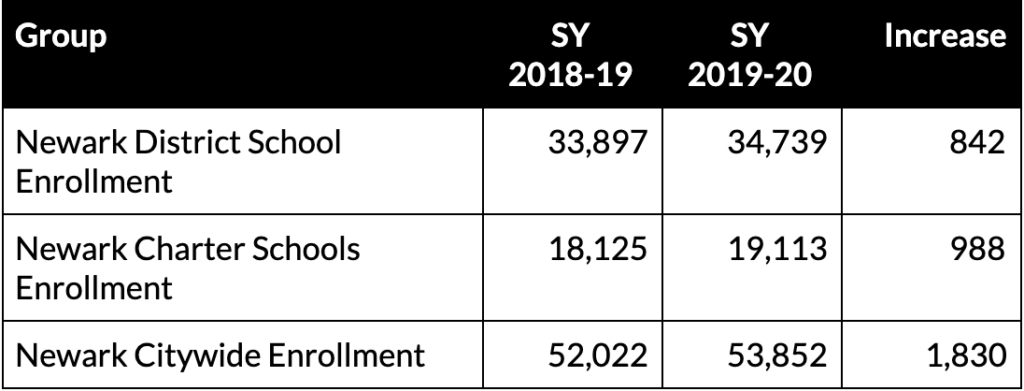
|
|
|
Newark Continues Citywide Public School Enrollment Surge For Fifth Consecutive Year
|
Thursday, September 24, 2020
|
Timothy White
|
|
21
|

|
|
|
|
T.J. Best joins charter school association
|
Wednesday, October 7, 2020
|
Timothy White
|
|
22
|
|
|
|
|
Community solar program gets big push: NJ moves to double the number of projects, clear hurdles for businesses to join
|
Wednesday, October 7, 2020
|
Timothy White
|
|
23
|
|
|
|
|
Amazon’s first brick-and-mortar ‘4-star’ store in N.J. is opening Tuesday
|
Tuesday, October 13, 2020
|
Timothy White
|
|
24
|

|
|
|
|
N.J.'s medical marijuana chief douses senator’s pipe dream of legal weed for sale immediately after the election
|
Friday, October 30, 2020
|
Timothy White
|
|
25
|
|
|
|
|
Legal weed now approved, Murphy names picks for commission to oversee N.J. marijuana industry
|
Friday, November 6, 2020
|
Timothy White
|
|
26
|

|
|
|
|
Details, exemptions for N.J.’s new outdoor gathering limit revealed by Gov. Murphy
|
Tuesday, December 1, 2020
|
Timothy White
|
|
27
|

|
|
|
|
Englewood Health named Pandemic Hero of the Year by Leapfrog Group
|
Tuesday, December 8, 2020
|
Timothy White
|
|
28
|

|
|
|
|
North Jersey native tapped by Gov. Phil Murphy to state Supreme Court.
|
Thursday, March 18, 2021
|
Timothy White
|
|
29
|

|
|
|
|
Does your kid need summer school after remote learning? The odds are good, new report says.
|
Tuesday, March 30, 2021
|
Timothy White
|
|
30
|

|
|
|
|
Amazon opens 3 delivery stations in N.J.
|
Tuesday, August 3, 2021
|
Timothy White
|
|
31
|

|
|
|
|
NJBPU Awards 165 MW of Community Solar to 105 Projects in Pilot Year 2
|
Friday, October 29, 2021
|
Timothy White
|
|
32
|

|
|
|
|
Senate’s education leader steps up and moves on
|
Thursday, December 16, 2021
|
Timothy White
|
|
33
|

|
|
|
|
RCSG's Danielle Alpert Named to Save Jersey's Right Women to Watch in 2022 list
|
Tuesday, January 4, 2022
|
Timothy White
|
|
34
|
|
|
|
|
RCSG's Kevin McCabe named Politician of the Year by NJ Globe
|
Tuesday, January 4, 2022
|
Timothy White
|
|
35
|
.jpg)
|
|
|
|
New N.J. Legislature — and new Senate president — sworn in. Some of the many new faces make history.
|
Wednesday, January 12, 2022
|
Timothy White
|
|
36
|

|
.jpg)
|
|
|
Congratulations to RCSG’s Danielle Alpert on this well-deserved recognition - ROI Influencers: Women in Business
|
Thursday, March 24, 2022
|
Timothy White
|
|
37
|
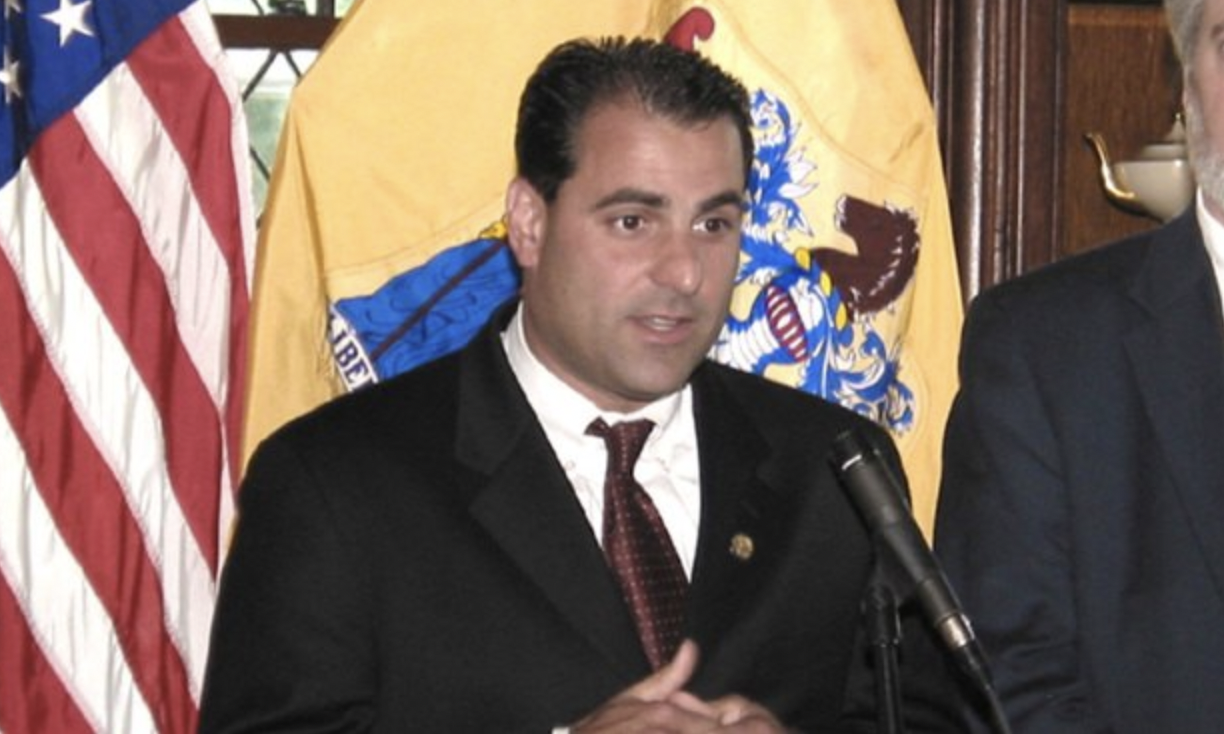
|
|
|
|
NJ is swimming in billions of extra dollars, officials say. The question is how to use it
|
Wednesday, May 18, 2022
|
Timothy White
|
|
38
|
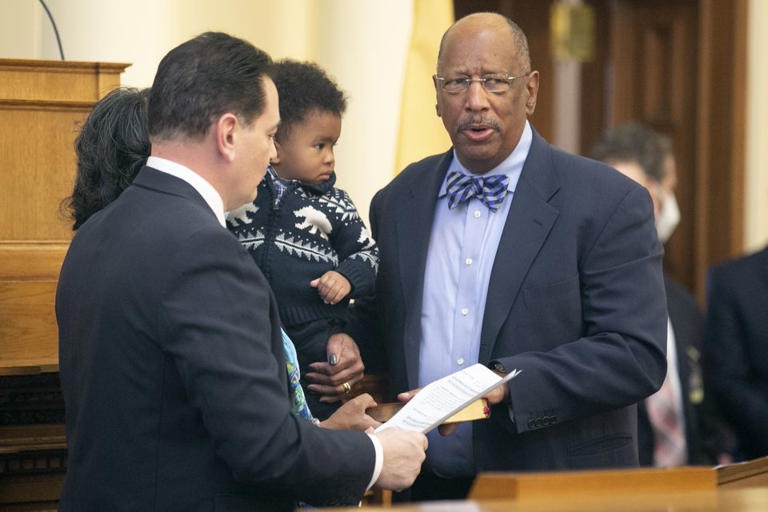
|
|
|
|
‘All eyes on N.J.’ with new push to protect poor and minority communities from pollution
|
Monday, June 13, 2022
|
Timothy White
|
|
39
|
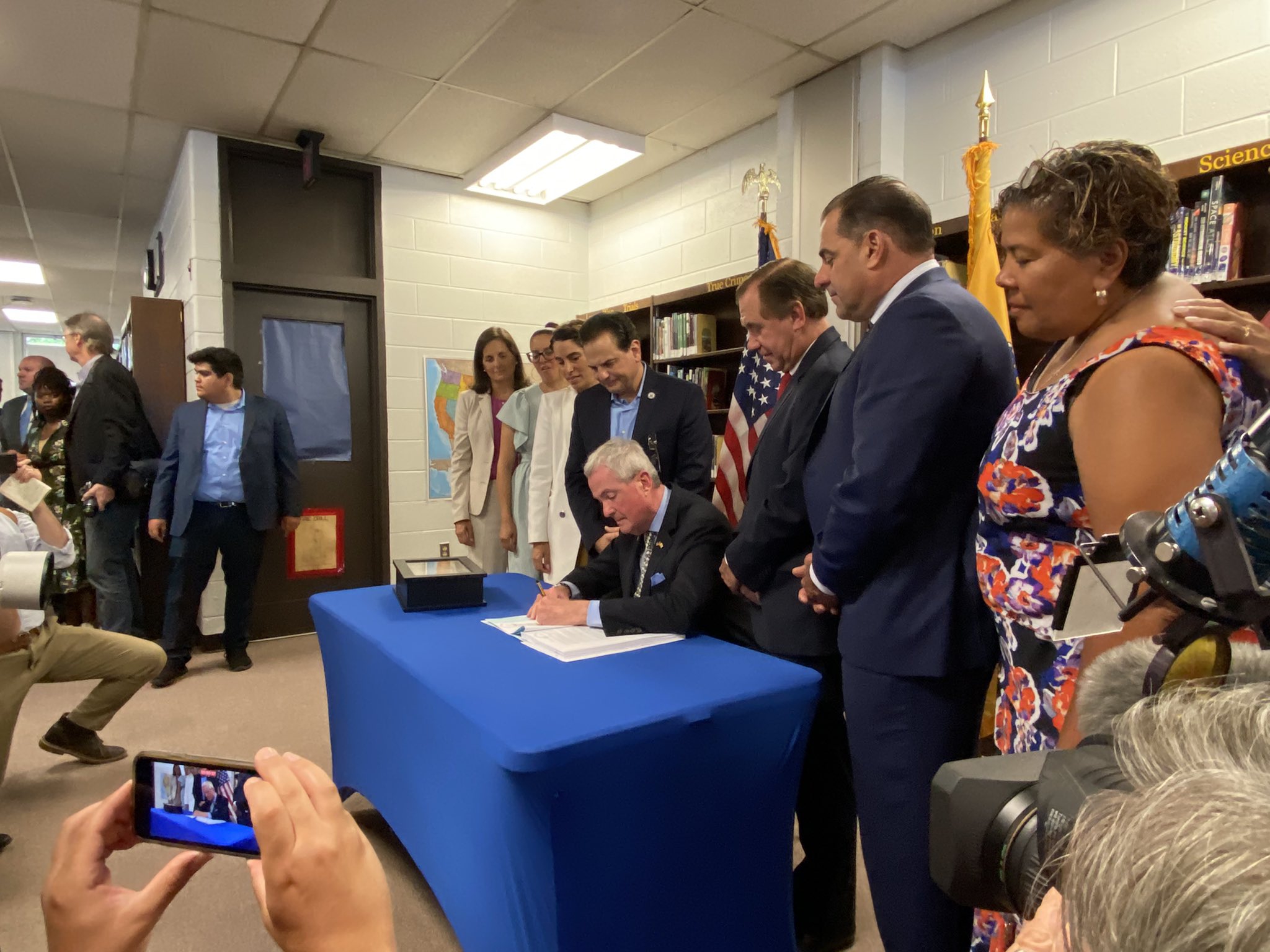
|
|
|
|
Murphy touts ‘historic and direct property tax relief’ as he signs $50.6B N.J. budget
|
Friday, July 1, 2022
|
Timothy White
|
|
40
|
|
|
|
|
New Incentives for Year 3 of Charge Up NJ EV Program
|
Wednesday, August 3, 2022
|
Timothy White
|
|
41
|

|
|
|
|
Developer of Hoboken Hilton Finalizes Land Deal, Sets Construction Timeline
|
Thursday, August 18, 2022
|
Timothy White
|
|
42
|
|
|
|
|
Getting our tax back: Murphy, Legislature offer 3 proposals to fight unfair taxation by other states
|
Wednesday, September 7, 2022
|
Timothy White
|
|
43
|

|
|
|
|
River Crossing Strategy Group promotes Yasmin Brissac to Legislative Associate
|
Wednesday, October 19, 2022
|
Timothy White
|
|
44
|
|
|
|
|
NJ abandons plan to require costly electric boiler upgrades
|
Wednesday, December 14, 2022
|
Timothy White
|
|
45
|
.jpg)
|
|
|
|
RCSG’s Stephanie Albanese Recognized on Sen. Weinberg’s Power List 2023
|
Tuesday, February 14, 2023
|
Timothy White
|
|
46
|
.jpg)
|
|
|
|
Janellen Duffy Joins River Crossing Strategy Group
|
Monday, February 27, 2023
|
Timothy White
|
|
47
|
|
|
|
|
New Client Announcement: New Jersey Symphony
|
Tuesday, March 21, 2023
|
Timothy White
|
|
48
|
|
|
|
|
Murphy Publishes New Environmental Justice Rules
|
Wednesday, April 19, 2023
|
Timothy White
|
|
49
|

|
|
|
|
New Client Announcement: NJ Tutoring Corps., Inc.
|
Tuesday, May 23, 2023
|
Timothy White
|
|
1049
|
|
|
|
|
Murphy, Coughlin, Scutari agree on framework for StayNJ senior tax cut deal
|
Tuesday, June 20, 2023
|
Timothy White
|
|
1050
|
|
|
|
|
Zimmerman replaces Caride at DOBI
|
Wednesday, June 28, 2023
|
Timothy White
|
|
1051
|
|
|
|
|
Natural gas' future is up in the air, but New Jersey isn't banning gas stoves
|
Wednesday, August 2, 2023
|
Timothy White
|
|
1052
|

|
|
|
|
Murphy names Guhl-Sadovy NJBPU president
|
Thursday, September 14, 2023
|
Timothy White
|
|
1053
|
|
|
|
|
Helmy to leave Governor's Office
|
Tuesday, September 19, 2023
|
Timothy White
|
|
1054
|

|
|
|
|
Governor Murphy Names Diane Gutierrez-Scaccetti as Chief of Staff
|
Tuesday, September 26, 2023
|
Timothy White
|
|
1055
|

|
|
|
|
River Crossing Strategy Group Launches New Public Affairs/Communications Practice in Northeast Florida
|
Wednesday, October 11, 2023
|
Timothy White
|
|
1056
|

|
|
|
|
New Jersey lawmakers plan overhaul of affordable housing system
|
Wednesday, December 20, 2023
|
Timothy White
|
|
1057
|

|
|
|
|
Murphy Appoints Francis O’Conner as New DOT Commissioner
|
Tuesday, January 30, 2024
|
Timothy White
|
|
1058
|
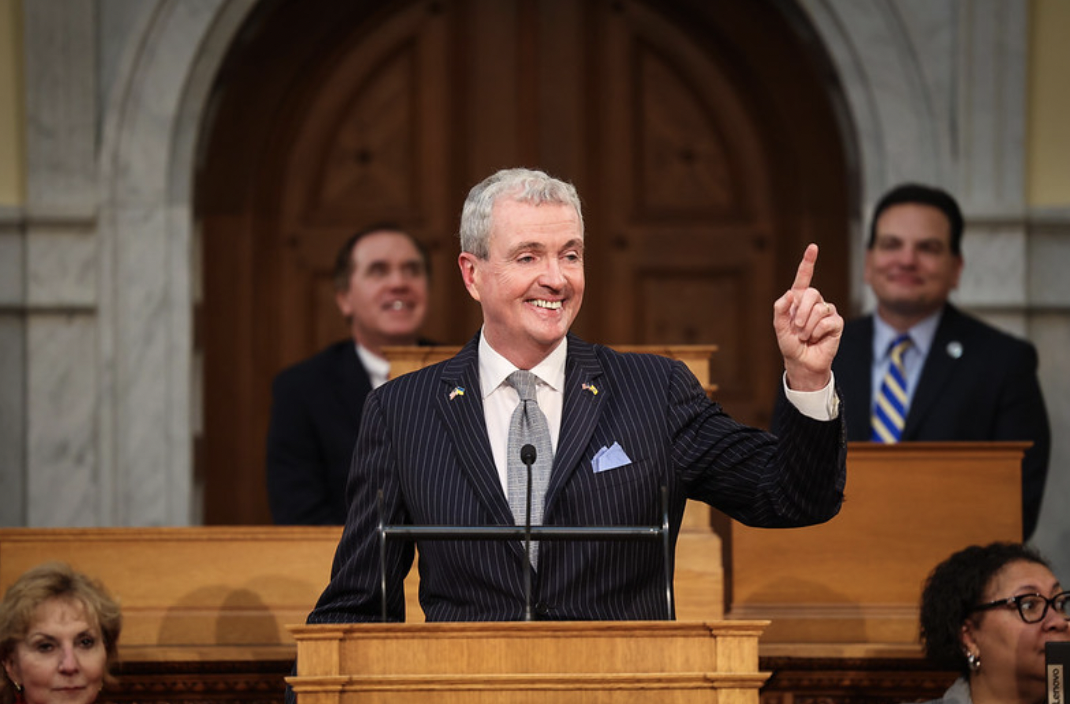
|
|
|
|
Gov. Phil Murphy proposes new NJ Transit funding, tax relief in budget address
|
Wednesday, March 6, 2024
|
Timothy White
|
|
1059
|
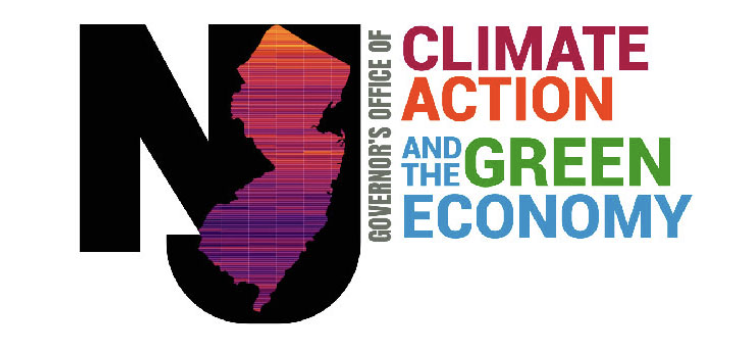
|
|
|
|
Eric Miller named executive director of Office of Climate Action and the Green Economy
|
Wednesday, March 20, 2024
|
Timothy White
|
|
1060
|

|
|
|
|
RCSG Announces Practice Group Leadership Positions
|
Monday, April 8, 2024
|
Timothy White
|
|
2059
|
|
|
|
|
Murphy Announces Landmark Solar Investments
|
Tuesday, April 30, 2024
|
Timothy White
|
|
2060
|
|
|
|
|
River Crossing Strategy Group welcomes Tyra Gibbs
|
Tuesday, May 7, 2024
|
Timothy White
|
|
2061
|
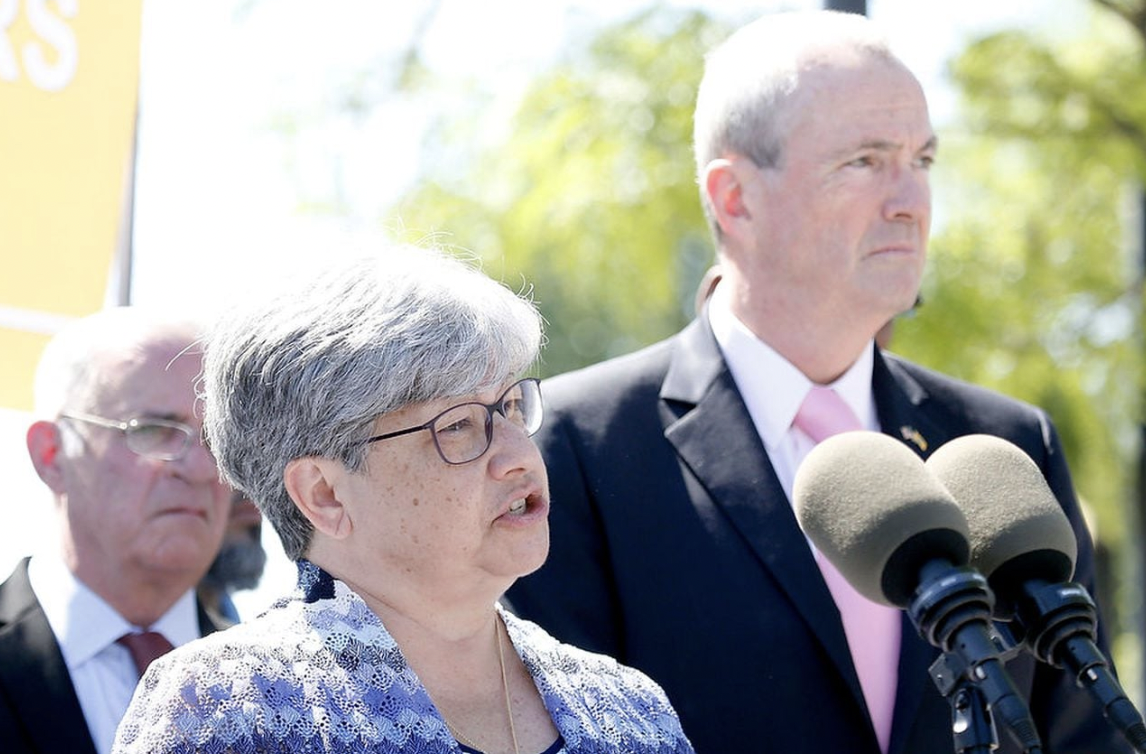
|
|
|
|
Governor Murphy Announces Departure of Chief of Staff Diane Gutierrez-Scaccetti and Names Tim Hillmann as New Chief of Staff
|
Tuesday, July 16, 2024
|
Timothy White
|
|
3061
|
|
|
|
|
RCSG Opens New Headquarters in Raritan Center Business Park
|
Thursday, October 31, 2024
|
Timothy White
|
|
3062
|
|
|
|
|
River Crossing Strategy Group Opens New Office in Downtown Jacksonville, FL
|
Wednesday, January 8, 2025
|
Timothy White
|